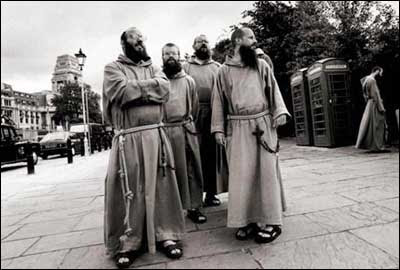The Holy Father has announced the establishment of a new dicastery for the evangelization of Europe. What energy and zeal he has in leading the church forward! An awful lot has been said and written about evangelization, furthermore there have been endless theories, movements, gimmicks and ideas about how to evangelize.
St Francis’ dictum, “Preach the word always and use words if you have to” is a favorite of Catholics, but too often this is a cop out from actually preaching. Conversely, there are other Catholics who spend all their time preaching and getting all the theology right, but neglect the social action that is required. Remember St Francis kissed lepers and ministered to them, but he also preached to the Sultan and the birds and anybody else who would listen.
What is therefore required for evangelization is word and action. People want to see lives transformed, but they also need to hear why and how they have been transformed. Combined with this emphasis on word and action, it is also vital to have another pair in balance: orthodoxy and orthopraxis–that is right belief and right action. Orthodoxy without orthopraxis is dull theology. Orthopraxis without orthodoxy is a religion of sentimentality, subjectivism and good works.
The biggest problem I see with the ‘traditional’ Catholics is that too often they are so concerned about beautiful liturgy and fine churches and pretty vestments and sublime music that they often neglect charity. Too many of them have no time or interest in evangelization, care for the poor and they are too slow to roll up their sleeves and get to work for God’s holy poor. On the other hand the peace and justice Catholics are too often swept up in social change, political agendas and dubious causes. They have neglected orthodoxy for orthopraxis.
Both are good and both are vital, and true evangelization is impossible if they are not both activated in the Catholic life. Those who are all works centered will rightly be asked, “So what?” and without an answer no one will know why they do the good works they do. Those who are all showy worship or fine preaching will rightly be asked, “So what? What are you doing about it?”
This is one of the reasons why the Franciscan Friars of the Renewal are perfect examples of the new evanglization. The friars are working right there in the heart of the Bronx with the addicts, prostitutes, pimps and drop outs. At the same time their life is driven by prayer, solemn and beautiful worship, and totally orthodox preaching. The same can be said of the Sisters of Life, the Missionaries of Charity and the other new and vibrant movements in the church.
If we are to evangelize then we must live this radical gospel life with the fullness of joy–proclaiming a gospel fearlessly and in truth and beauty, then living the gospel life fearlessly in truth and beauty. Then as the lives are seen and the word is heard others will long to know how they too can have such peace, such joy and such a beautiful energy for life.
This takes us to the heart of evangelization. The evangelist does not have some great ideology or plan or gimmick. He is simply believing, proclaiming and living the power of the resurrection. This sparks in the human heart not only admiration but desire: desire for reality, desire for life, desire for truth, desire for beauty, desire for goodness, desire for eternity, desire for love. Once that desire is truly sparked the soul can begin the long search that will finally lead them home.














